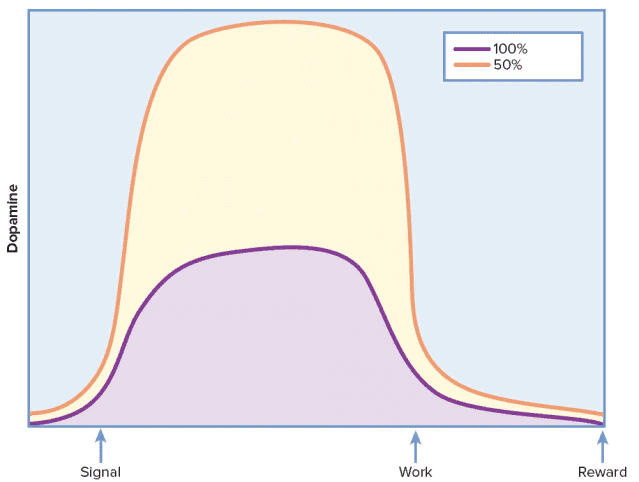Biology of Information Dependence
Founder of Instagram: - “People have always been visuals - our brain processes images better. Writing is not natural to humans. On Instagram, we return to what is most natural. Instagram has always been a communication platform, not an image-sharing tool. Instagram’s built-in feedback systems help users continually improve their communication skills. ” I’ll clarify that I am not saying anything vehemently, it’s just a by-product of the brain’s activity here, I’m always happy to argue! Let's do unnatural things, drove them.

As always, something against the background of something
Sapiens from the “economists” cohort have made most of the materials in our universe a commodity. From the territory, oil, coal, plants, hydrogen-rich water, height (the Ferris wheel is just a sale of height) to forecasts, lectures, relics of saints, sensations, faith (stocks, shares - this is the degree of faith in the company). There were only two entities that economists could not translate into the category of economic product. This is a vacuum and attention. We have not yet reached the vacuum, but sorted out with attention, it seems! That’s how biology is here. A small cognitive excursion:
1) The key sensory modalities of sapiens are vision (most developed) and hearing (second in importance). By this is meant that the brain prefers information flows precisely from these systems! A brief example.
Information from different sensor systems is processed at different speeds. Visual information weighs more than auditory information and therefore takes longer to process. But all the information is supplied simultaneously and synchronously. If you want to make sure of this, then just clap your hands now, at the same time picture and sound? paradox, huh? The brain delays some information, waiting for the rest of the sequences to load, so formally, you live in the past, my friend. That is why sprints use a shot rather than a visual signal, the sound is processed faster. It is important to clarify, although the information is delivered synchronously, but to some flows, the brain may give less preference to assess the situation! For example, if it smells of burning, but other sensory systems do not see evidence of this, then the brain may simply omit this fact. This globally affects our behavior, we prefer vision and hearing. So, the very methods of analyzing and processing information we have focused on these sensor systems!
2) The role of dopamine! Robert Sapolsky will help here (I recommend his books to everyone: “Why Zebras Have No Ulcers” and “Biology of Good and Evil”). In a very simplified form, dopamine helps you feel happy and motivated. Many people think that dopamine is released when the brain receives a reward, but dopamine is actually released in anticipation of a reward. The peculiarity is also that if you add not 100% probability of receiving a reward, but make it 50%, then one more expectation is added and the amount of dopamine grows significantly!

When you offered to be together, and she said “maybe”
3) How drugs work. Narcotic substances mainly affect the dopamine system. If you constantly stimulate the dopamine system to produce dopamine through drugs (coffee, nicotine, Naruto, Putin), then over time the brain gets used to and disables the natural production of dopamine, as it knows that stimulation will happen anyway. That is why it is hard to quit smoking, there are no external incentives, the internal production system is disabled and some recovery time is required (recovery time from a week to three). About the effect of decreasing returns on doses, it makes no sense to speak, and so everyone knows.
4) How drugs affect behavior. Narcotic substance very rarely creates a completely new behavior, usually it enhances the existing one. Have you ever noticed that the body reacts to alcohol from time to time in a new way? A popular myth that alcohol causes aggression is a lie. Alcohol does not cause aggressive behavior, it only reinforces the tendency that already exists. You sit down to drink cheerful and after three glasses you will joke even more, and if you were sad, then most likely there will be tears. Naturally, there are exceptions, but in most cases, narcotic substances only enhance what really exists!
The biology minute is over! Such conclusions, vision and hearing decide, dopamine inspires us (maybe), drugs only strengthen, but do not create! Let's see what happens with social media and digital space!

Why save the Belarusian village if you can let it die?
Yesterday a report came outMary Meeker, who describes the state of things in the digital universe, is very interested in the following figures: China and its 817 million mobile Internet users are a model for the development of many markets. The Chinese every day watch vidosikov for 600 million hours, this is their main content (eyesight and love for pictures we see in DNA). Sapiens go on the Internet more and more, Americans spend 6.3 hours on digital devices, 3.6 hours on a smartphone (these are pictures directly from a piece of plastic, it’s a pity that you can’t download directly to the brain).
They stick more into mobile phones than into TV (226 minutes versus 216). Most grow instagram and youtube. The second largest segment is podcasts (hearing is probably a shame, he is even here in the role of a chasing one, but soon we will all become blind and he will win back). In the USA, over 4 years the audience doubled and became equal to 70 million. Why podcasts are needed when there is a radio, I could not understand. Voice assistants and podcasts grow faster than consuming and typing.
The trend is such that sapiens are switching to pictures and sounds, which is quite logical from our biology. It’s also cool that we’ve just gone on a social basis, maybe we are cooler than ants, which means that we have developed role-playing games and we love to play! Which confirmed the report. 2.4 billion sapiens play or consume interactive entertainment in digital spaces. Information overload is a huge problem, 28% of adult Americans “almost constantly” (it does not say how many minutes it is) were online. In the age group of 18–29 years, the same indicator was 39%. The same effect of decreasing the benefits of the doses as it works consumes that you need to consume more each time in order to reach at least the same level of pleasure. Now back to the founder of instagram and his words! Let’s think what all this means!

When I decided to get confused and download an erotic video player to a smartphone
Every three minutes a person touches a smartphone. Every six minutes he opens an application. This is + -360 touches per day. In their search for unique and, therefore, the most valuable resources, companies more than once in the history of capitalism have demonstrated their inventiveness. From the industrial revolution, which was based on the chemical and physical achievements of science, to the Internet of things, where objects from the real world become participants in dynamic communication systems, coupled with sapiens. It is information that becomes the main participant and engine of the fourth technological revolution and cyberpunk. Cybernetics and computer science are at their peak, but what will happen next? How far will companies go? Or have they already entered? They found the most valuable resource that exists in these conditions of the outside world. This resource is our attention.
To play with the biology of human behavior and its behavioral addictions is what many companies are doing now. Going into an application, you can see several notifications, but you can not see it. Uncertainties have always attracted individuals of the species, dragging them into the game. Variable rewards in the form of social approvals “I like” are captivating. And there is also this “maybe” effect. Sapiens spends “inside” the network more and more time, and if and while he is there, you can twist ads and monetize his attention. Coins, like in any business, are behind the involvement in online communications. The desire to increase profits is the normal behavior of a commercial structure. But it is important to understand the price that every human and society as a whole pays for the profits of companies. Play with biology and put him on an informational drug, using his weaknesses for this (love of pictures and songs of fame of the Communist Party of the Soviet Union)? I'm against!
How do companies manipulate attention and make people spend more and more time online? Everything according to the biology described above. The crush on visual and hearing, all content is now aimed at this. The crush on social nature and the fear of being alone (we are all alone, otherwise Jean Paul Sartre does not understand anything). Crush on games and role-playing excitement. Boredom in modern society is a clear problem and companies solve it. In one psychological experiment, people preferred to shock themselves, if only they would not sit for 20 minutes alone with their thoughts. In this regard, acquaintance with content or correspondence is a more pleasant leisure than talk.
All this is supported by the ability to pursue numerical goals. Intelligent, constantly challenging themselves. Do 100 squats more, earn 2000 cu more than my friend. Applications provide an opportunity to measure micro targets numerically, which means they provide an opportunity for micro victories. This time the photo on the Facebook profile collected 40 likes, which is 5 more than the previous one. The next one should be even cooler. And now he is already absorbed in the process. It is located inside the web, and if it becomes boring, just go to another application and repeat the process. The most amazing thing is that when you get bored with this, you can offer the sapiens to become a content generator and make you happy for your own project (micro-victories (dopamine) and the “maybe” uncertainties right here right there), holding it inside!
The creators of applications, content and advertisers at these moments are like a duck swimming in gold coins. But in fact - they are all dependency providers. Moreover, those who sell addictions today, at one time, at the start of sales, were sure that they were doing a good deed. From drug dealers, nicotine and alcohol dealers to sellers of micro-wins, entertainment and expectations. Nothing new!

As always, something against the background of something
Sapiens from the “economists” cohort have made most of the materials in our universe a commodity. From the territory, oil, coal, plants, hydrogen-rich water, height (the Ferris wheel is just a sale of height) to forecasts, lectures, relics of saints, sensations, faith (stocks, shares - this is the degree of faith in the company). There were only two entities that economists could not translate into the category of economic product. This is a vacuum and attention. We have not yet reached the vacuum, but sorted out with attention, it seems! That’s how biology is here. A small cognitive excursion:
1) The key sensory modalities of sapiens are vision (most developed) and hearing (second in importance). By this is meant that the brain prefers information flows precisely from these systems! A brief example.
Information from different sensor systems is processed at different speeds. Visual information weighs more than auditory information and therefore takes longer to process. But all the information is supplied simultaneously and synchronously. If you want to make sure of this, then just clap your hands now, at the same time picture and sound? paradox, huh? The brain delays some information, waiting for the rest of the sequences to load, so formally, you live in the past, my friend. That is why sprints use a shot rather than a visual signal, the sound is processed faster. It is important to clarify, although the information is delivered synchronously, but to some flows, the brain may give less preference to assess the situation! For example, if it smells of burning, but other sensory systems do not see evidence of this, then the brain may simply omit this fact. This globally affects our behavior, we prefer vision and hearing. So, the very methods of analyzing and processing information we have focused on these sensor systems!
2) The role of dopamine! Robert Sapolsky will help here (I recommend his books to everyone: “Why Zebras Have No Ulcers” and “Biology of Good and Evil”). In a very simplified form, dopamine helps you feel happy and motivated. Many people think that dopamine is released when the brain receives a reward, but dopamine is actually released in anticipation of a reward. The peculiarity is also that if you add not 100% probability of receiving a reward, but make it 50%, then one more expectation is added and the amount of dopamine grows significantly!

When you offered to be together, and she said “maybe”
3) How drugs work. Narcotic substances mainly affect the dopamine system. If you constantly stimulate the dopamine system to produce dopamine through drugs (coffee, nicotine, Naruto, Putin), then over time the brain gets used to and disables the natural production of dopamine, as it knows that stimulation will happen anyway. That is why it is hard to quit smoking, there are no external incentives, the internal production system is disabled and some recovery time is required (recovery time from a week to three). About the effect of decreasing returns on doses, it makes no sense to speak, and so everyone knows.
4) How drugs affect behavior. Narcotic substance very rarely creates a completely new behavior, usually it enhances the existing one. Have you ever noticed that the body reacts to alcohol from time to time in a new way? A popular myth that alcohol causes aggression is a lie. Alcohol does not cause aggressive behavior, it only reinforces the tendency that already exists. You sit down to drink cheerful and after three glasses you will joke even more, and if you were sad, then most likely there will be tears. Naturally, there are exceptions, but in most cases, narcotic substances only enhance what really exists!
The biology minute is over! Such conclusions, vision and hearing decide, dopamine inspires us (maybe), drugs only strengthen, but do not create! Let's see what happens with social media and digital space!

Why save the Belarusian village if you can let it die?
Yesterday a report came outMary Meeker, who describes the state of things in the digital universe, is very interested in the following figures: China and its 817 million mobile Internet users are a model for the development of many markets. The Chinese every day watch vidosikov for 600 million hours, this is their main content (eyesight and love for pictures we see in DNA). Sapiens go on the Internet more and more, Americans spend 6.3 hours on digital devices, 3.6 hours on a smartphone (these are pictures directly from a piece of plastic, it’s a pity that you can’t download directly to the brain).
They stick more into mobile phones than into TV (226 minutes versus 216). Most grow instagram and youtube. The second largest segment is podcasts (hearing is probably a shame, he is even here in the role of a chasing one, but soon we will all become blind and he will win back). In the USA, over 4 years the audience doubled and became equal to 70 million. Why podcasts are needed when there is a radio, I could not understand. Voice assistants and podcasts grow faster than consuming and typing.
The trend is such that sapiens are switching to pictures and sounds, which is quite logical from our biology. It’s also cool that we’ve just gone on a social basis, maybe we are cooler than ants, which means that we have developed role-playing games and we love to play! Which confirmed the report. 2.4 billion sapiens play or consume interactive entertainment in digital spaces. Information overload is a huge problem, 28% of adult Americans “almost constantly” (it does not say how many minutes it is) were online. In the age group of 18–29 years, the same indicator was 39%. The same effect of decreasing the benefits of the doses as it works consumes that you need to consume more each time in order to reach at least the same level of pleasure. Now back to the founder of instagram and his words! Let’s think what all this means!

When I decided to get confused and download an erotic video player to a smartphone
Every three minutes a person touches a smartphone. Every six minutes he opens an application. This is + -360 touches per day. In their search for unique and, therefore, the most valuable resources, companies more than once in the history of capitalism have demonstrated their inventiveness. From the industrial revolution, which was based on the chemical and physical achievements of science, to the Internet of things, where objects from the real world become participants in dynamic communication systems, coupled with sapiens. It is information that becomes the main participant and engine of the fourth technological revolution and cyberpunk. Cybernetics and computer science are at their peak, but what will happen next? How far will companies go? Or have they already entered? They found the most valuable resource that exists in these conditions of the outside world. This resource is our attention.
To play with the biology of human behavior and its behavioral addictions is what many companies are doing now. Going into an application, you can see several notifications, but you can not see it. Uncertainties have always attracted individuals of the species, dragging them into the game. Variable rewards in the form of social approvals “I like” are captivating. And there is also this “maybe” effect. Sapiens spends “inside” the network more and more time, and if and while he is there, you can twist ads and monetize his attention. Coins, like in any business, are behind the involvement in online communications. The desire to increase profits is the normal behavior of a commercial structure. But it is important to understand the price that every human and society as a whole pays for the profits of companies. Play with biology and put him on an informational drug, using his weaknesses for this (love of pictures and songs of fame of the Communist Party of the Soviet Union)? I'm against!
How do companies manipulate attention and make people spend more and more time online? Everything according to the biology described above. The crush on visual and hearing, all content is now aimed at this. The crush on social nature and the fear of being alone (we are all alone, otherwise Jean Paul Sartre does not understand anything). Crush on games and role-playing excitement. Boredom in modern society is a clear problem and companies solve it. In one psychological experiment, people preferred to shock themselves, if only they would not sit for 20 minutes alone with their thoughts. In this regard, acquaintance with content or correspondence is a more pleasant leisure than talk.
All this is supported by the ability to pursue numerical goals. Intelligent, constantly challenging themselves. Do 100 squats more, earn 2000 cu more than my friend. Applications provide an opportunity to measure micro targets numerically, which means they provide an opportunity for micro victories. This time the photo on the Facebook profile collected 40 likes, which is 5 more than the previous one. The next one should be even cooler. And now he is already absorbed in the process. It is located inside the web, and if it becomes boring, just go to another application and repeat the process. The most amazing thing is that when you get bored with this, you can offer the sapiens to become a content generator and make you happy for your own project (micro-victories (dopamine) and the “maybe” uncertainties right here right there), holding it inside!
The creators of applications, content and advertisers at these moments are like a duck swimming in gold coins. But in fact - they are all dependency providers. Moreover, those who sell addictions today, at one time, at the start of sales, were sure that they were doing a good deed. From drug dealers, nicotine and alcohol dealers to sellers of micro-wins, entertainment and expectations. Nothing new!
